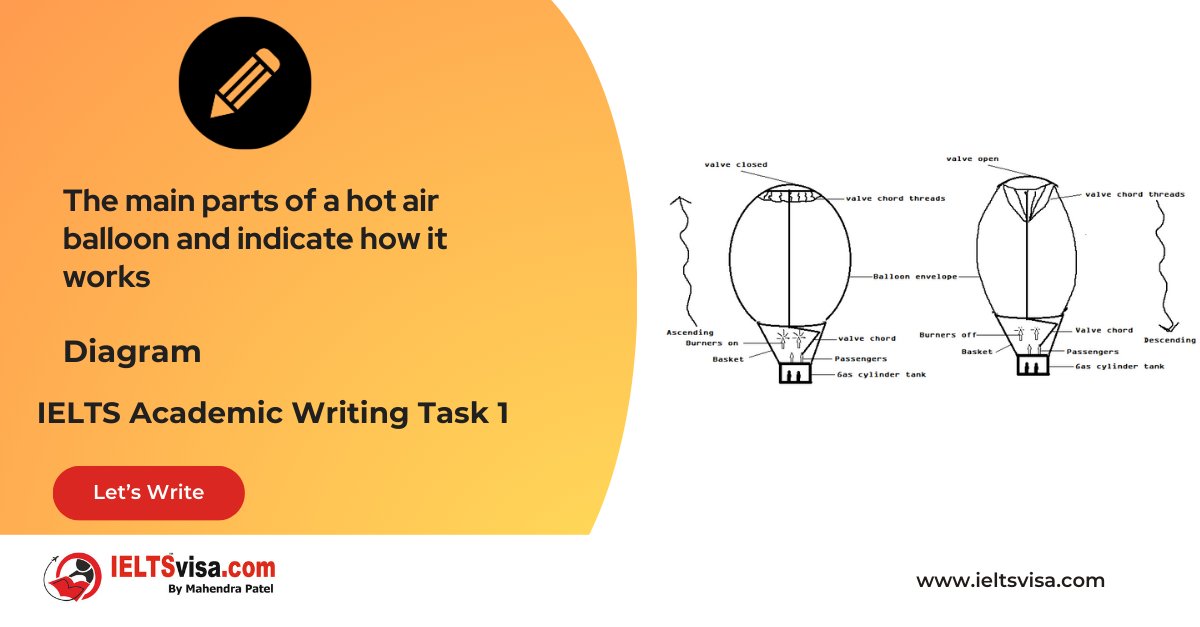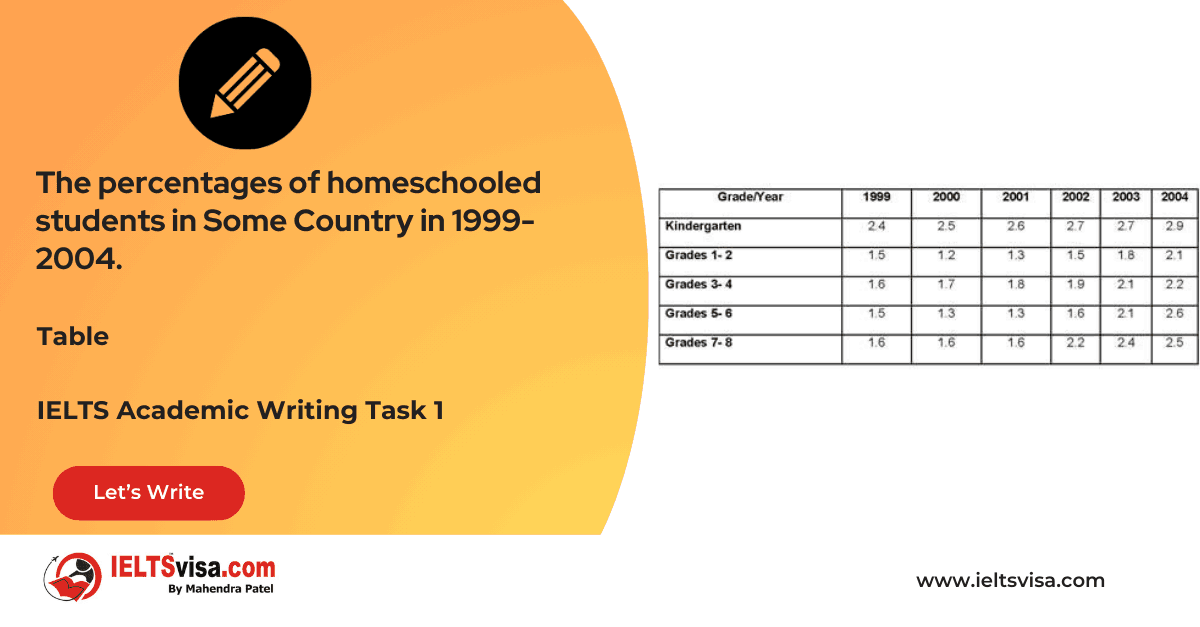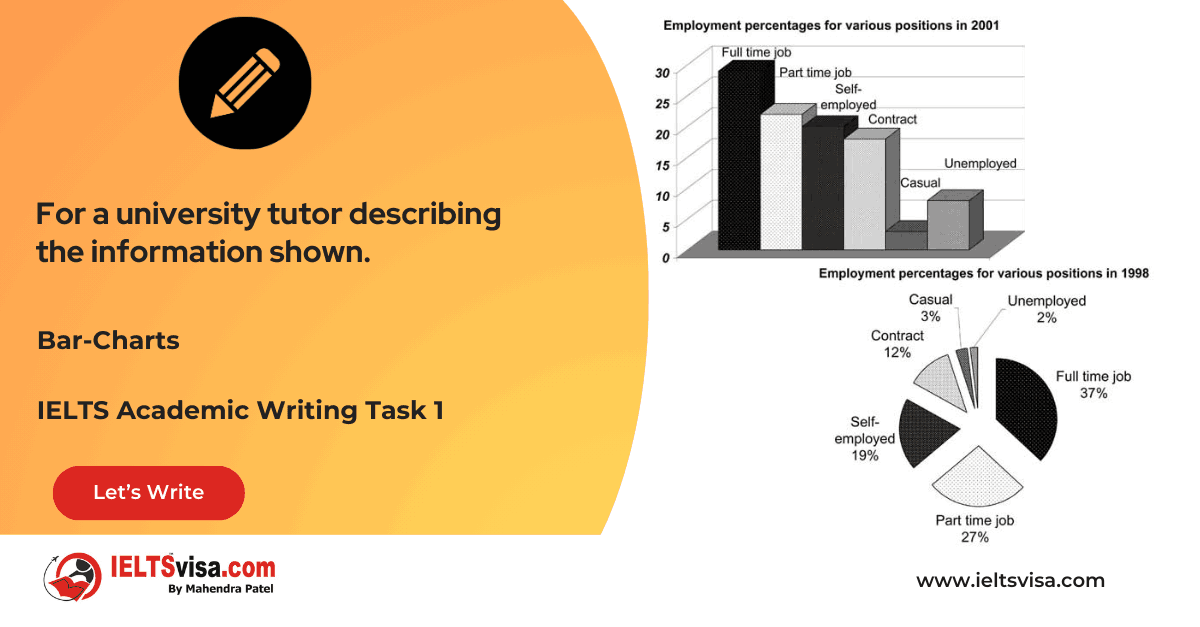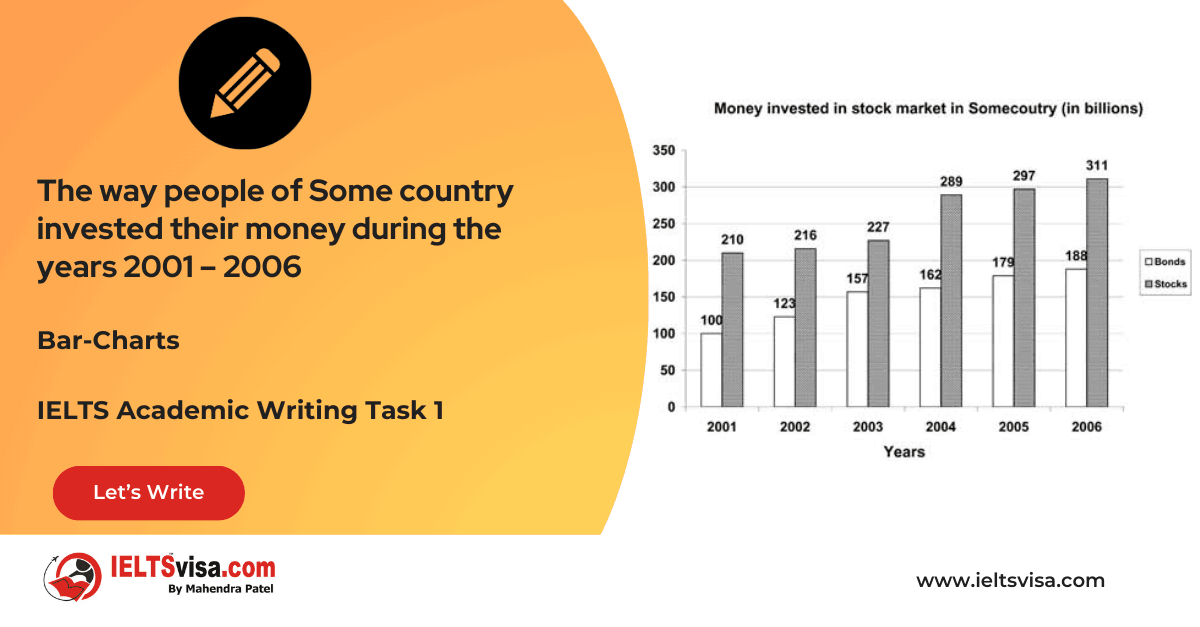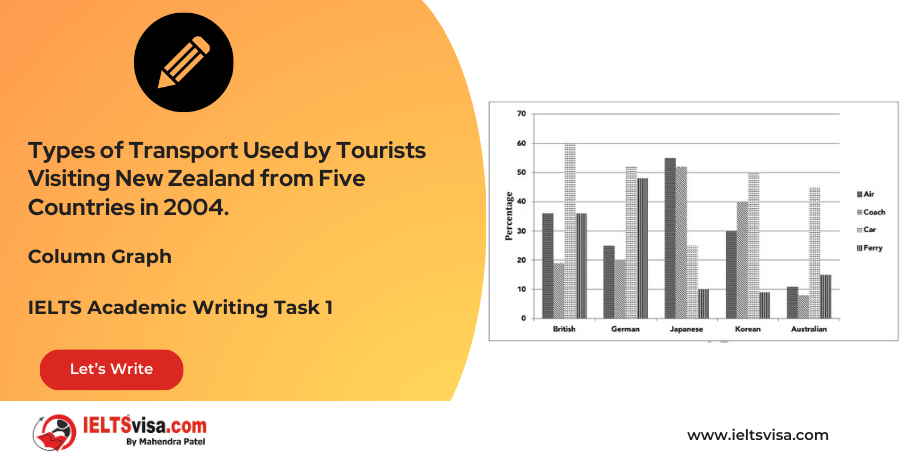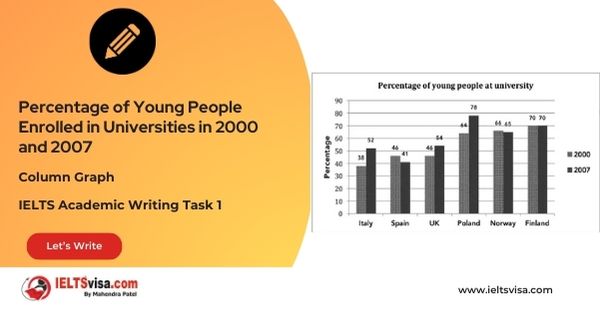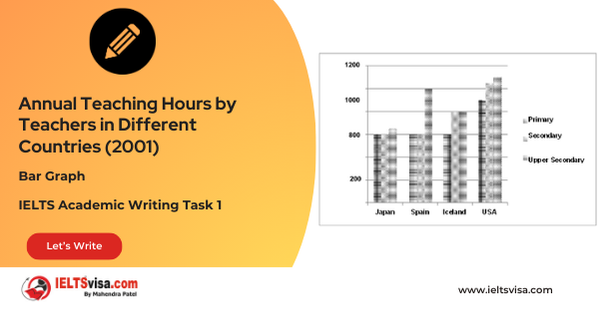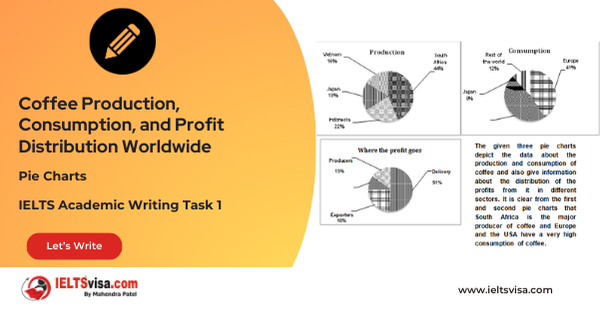Vocabulary and Phrases for Describing Processes, such as "Firstly, Next, Then, Finally"
Processes -IELTS Academic Writing Task 1
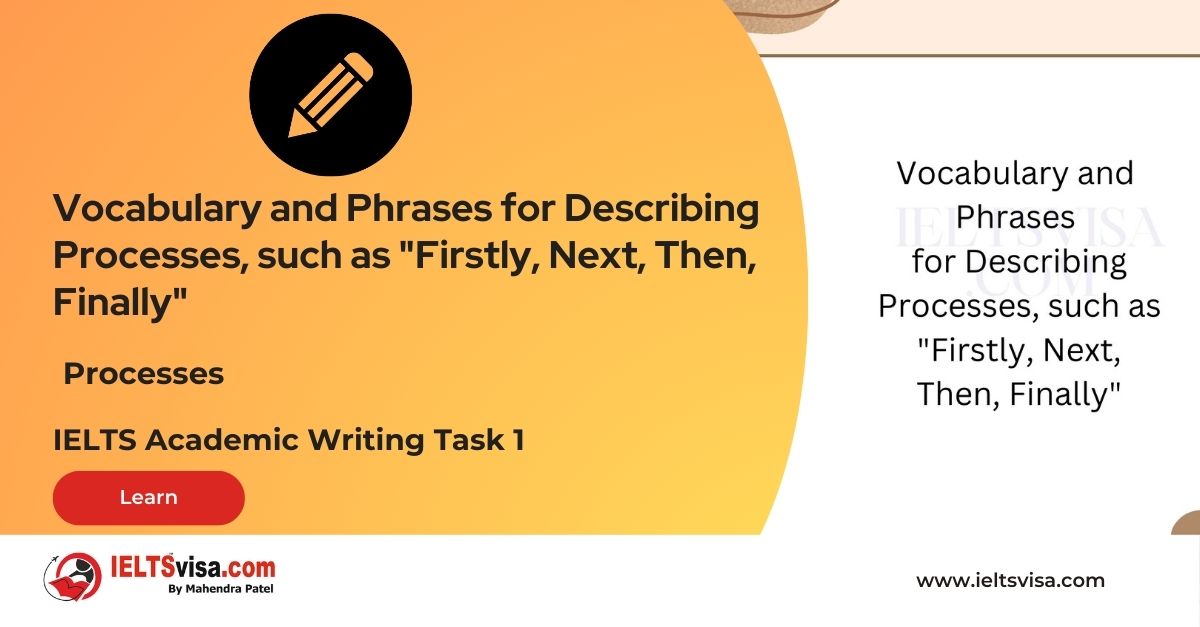
In the IELTS Academic Writing Task 1, candidates often encounter diagrams or flowcharts representing processes.
Describing these processes effectively requires a strong command of vocabulary and appropriate phrases to convey the order and sequence of the stages.
This article will explore essential vocabulary and phrases for describing processes, including words like “firstly, next, then, finally,” along with examples and sample answers.
1. Firstly:
“Firstly” is a valuable word to indicate the initial stage of the process. It establishes the starting point and sets the order of the subsequent stages. Here’s an example:
Example:
The Water Purification Process Firstly, raw water is drawn from the source and directed to the treatment facility through an intake pipe.
In this example, “firstly” introduces the beginning of the water purification process, highlighting the first action taken.
2. Next:
“Next” is a transition word that indicates the subsequent stage or step in the process. It helps maintain a clear progression and connect the stages smoothly. Consider the following example:
Example:
The Production of Paper Firstly, wood chips are soaked in water to soften them. Next, the softened chips are mechanically pulped or chemically treated to separate the fibres.
In this example, “next” links the soaking stage with the subsequent action of pulping or treating the wood chips.
3. Then:
“Then” is another commonly used word to show the order of events or stages. It signifies the immediate sequential step following the previous action.
Example:
The Manufacturing of Cars First, steel sheets are cut into specific shapes using computer-controlled machines. Then, the pieces are assembled by workers on the assembly line.
In this example, “then” indicates the progression from cutting the steel sheets to the subsequent stage of assembling the pieces.
4. Finally:
“Finally” is a word that denotes the last stage or step of the process. It signifies the endpoint or the ultimate action in the sequence.
Example:
The Construction of a Building Firstly, the foundation is laid, and the structural framework is erected. Next, the walls and roof are constructed. Then, the interior finishing work takes place. Finally, the building is inspected for safety and handed over to the owner.
In this example, “finally” marks the culmination of the construction process, indicating the last action performed before completion.
Sample Answer:
The given diagram illustrates the process of coffee production.
To describe the stages effectively, the following vocabulary and phrases are utilized:
Firstly, the coffee cherries are picked from the trees by hand. Next, the cherries are sorted based on their quality and ripeness. Then, they undergo a washing process to remove any impurities. Subsequently, the washed cherries are placed on drying beds or in drying machines to remove moisture. Finally, the dried cherries are roasted to enhance flavour and aroma.
In this sample answer, the vocabulary and phrases like “firstly, next, then, finally” are used to clearly demonstrate the order and sequence of the stages in the coffee production process.
In conclusion, using appropriate vocabulary and phrases is essential for describing processes accurately in IELTS Academic Writing Task 1. Words such as “firstly, next, then, finally” help establish the stages’ order and progression, ensuring a clear and coherent description.
Practice incorporating these vocabulary and phrases into your writing to enhance your ability to describe processes effectively.




Our Books
Master IELTS Speaking Part 1
IELTS Writing Task 1 Book
IELTS Writing Task 2 Book
Practice IELTS Other Modules
IELTS Listening
The IELTS Listening test assesses how well you can understand spoken English in various contexts. It lasts about 30 minutes and is divided into four sections with a total of 40 questions. The listening tasks become increasingly difficult as the test progresses.
IELTS Academic Reading
The IELTS Academic Reading section assesses your ability to understand and interpret a variety of texts in academic settings. It is designed to evaluate a range of reading skills, including skimming for gist, reading for main ideas, reading for detail, understanding inferences, and recognizing a writer's opinions and arguments.
IELTS Speaking
The IELTS Speaking test assesses your ability to communicate in English on everyday topics. It lasts 11-14 minutes and consists of three parts: introduction, cue card, and a discussion based on the cue card topic.
IELTS General Reading
IELTS General Reading tests your ability to understand and interpret various types of texts. Here are some key areas and types of content you can expect to encounter in the reading section, along with tips for effective preparation.
IELTS Academic Writing Task 1
In IELTS Academic Writing Task 1, you are presented with a visual representation of information, such as graphs, charts, tables, or diagrams, and you are required to summarize, compare, or explain the data in your own words.
IELTS General Writing Task 1
In IELTS General Writing Task 1, you are required to write a letter based on a given situation. The letter can be formal, semi-formal, or informal, depending on the prompt. Here’s a breakdown of the key components to include in your letter
IELTS Academic Writing Task 2
In IELTS Academic Writing Task 2, you are required to write an essay in response to a question or topic. Here’s a guide to help you understand the essential elements of this task
IELTS Exam Tips
To succeed in the IELTS exam, practice regularly, familiarize yourself with the test format, improve your vocabulary, develop time management skills, and take mock tests to build confidence.
Grammer for IELTS
Grammar is the foundation of effective communication in English. Understanding tense usage, subject-verb agreement, and sentence structure enhances clarity and coherence in writing and speaking.
Vocabulary for IELTS
Vocabulary plays a crucial role in the IELTS (International English Language Testing System) exam, especially in the Speaking and Writing sections. Here’s an overview of why vocabulary is important and how it impacts your performance
RECENT IELTS SAMPLES QUESTIONS AND ANSWERS
Task 1 – Diagram – A conference hall built in 1981 and planned for 2020
20:00 Start Pause Stop [df_adh_heading title_infix="IELTS Writing Task 1 Question" use_divider="on"...
Task 1 – Table – The percentages of homeschooled students in Some Country in 1999-2004.
20:00 Start Pause Stop [df_adh_heading title_infix="IELTS Writing Task 1 Question" use_divider="on"...
Task 1 – Table – For a university tutor describing the information shown.
20:00 Start Pause Stop [df_adh_heading title_infix="IELTS Writing Task 1 Question" use_divider="on"...
Task 1 – Bar-Charts – The way people of Some country invested their money during the years 2001 – 2006
20:00 Start Pause Stop [df_adh_heading title_infix="IELTS Writing Task 1 Question" use_divider="on"...
Task 1 – Diagram – Rainwater Harvesting and Conversion to Drinking Water in an Australian Town.
20:00 Start Pause Stop [df_adh_heading title_infix="IELTS Writing Task 1 Question" use_divider="on"...
Task 1 – Column graph – Percentage of Young People Enrolled in Universities in 2000 and 2007.
20:00 Start Pause Stop [df_adh_heading title_infix="IELTS Writing Task 1 Question" use_divider="on"...
Task 1 – Bar Graph – Annual Teaching Hours by Teachers in Different Countries (2001)
20:00 Start Pause Stop [df_adh_heading title_infix="IELTS Writing Task 1 Question" use_divider="on"...
Task 1 – Pie Charts – Coffee Production, Consumption, and Profit Distribution Worldwide
20:00 Start Pause Stop [df_adh_heading title_infix="IELTS Writing Task 1 Question" use_divider="on"...
Task 1 – Column graph – Types of Transport Used by Tourists Visiting New Zealand from Five Countries in 2004.
20:00 Start Pause Stop [df_adh_heading title_infix="IELTS Writing Task 1 Question" use_divider="on"...

